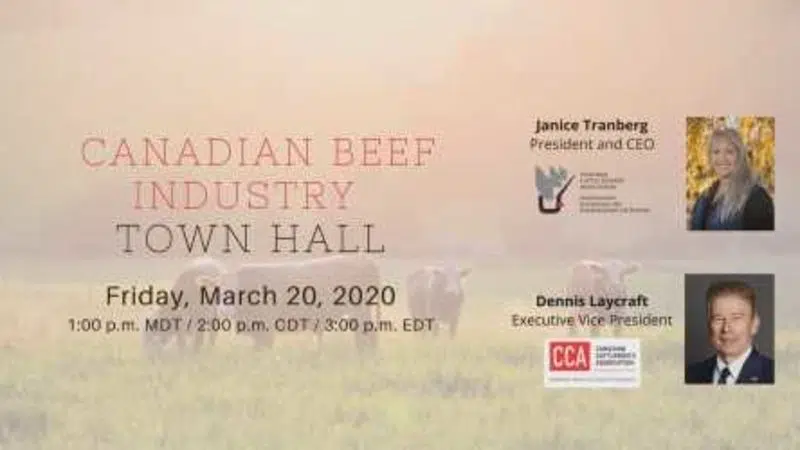
National beef industry says sector is up to the COVID-19 challenge
MEDICINE HAT – It’s unprecedented times in Canada’s beef industry and Friday saw heads of several of the top organizations in the sector hold a town hall to discuss procedures going forward in light of the COVID-19 pandemic.
“We need to take every reasonable precaution to address the threat of the COVID-19 pandemic and we want to help,” said Janice Tranberg, president of the Alberta Cattle Feeders Association during Friday’s teleconference.
There was a number of practical concerns discussed, including how to practise social distancing during the current spring bull sales season, the discrepancies between the retail demand and future’s pricing as well as capacity for beef processors to meet demand.
